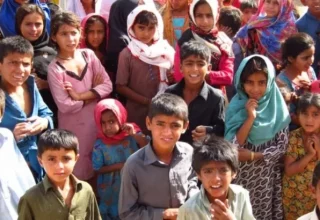
A new report on Pakistan’s District Vulnerability Index has revealed that Punjab leads the country in human development, while Balochistan and Khyber Pakhtunkhwa (KP) remain the most disadvantaged regions.
The report, launched by Finance Minister Mohammad Aurangzeb and Minister for Climate Change Musaddiq Malik, stresses the need for direct financial transfers to districts, warning that provincial capitals’ strong control over resources has contributed to widespread underdevelopment.
Based on six sectors — housing, livelihoods, communication, transport, access to health and education, and birth rates — the report ranks districts according to social, economic, and climate vulnerabilities. It also questions whether additional funds provided under the 7th National Finance Commission are being spent locally or diverted to federal debt repayment.
The report shows that of the 20 least vulnerable districts, 13 are in Punjab, four in Sindh, and two in KP, with no district in Balochistan making the list. Conversely, the most vulnerable districts include 17 from Balochistan, two from former FATA, and one from Sindh, while Punjab has none in this category.
Chief Economist Dr. Imtiaz Ahmed noted that the population growth rate of 2.55 percent is putting pressure on all stakeholders to act decisively. He highlighted that better-performing districts, such as Karachi and Lahore, remain connected to the rest of the country through infrastructure.
According to Musaddiq Malik, the 20 most vulnerable districts are home to roughly 11.3 percent of Pakistan’s population, including around 2 million adult women and 2 million children under five years. Critical infrastructure gaps persist in housing, safe water, and sanitation: 65 percent of the population in the worst-performing districts lives in temporary housing, with half lacking proper latrines and 40 percent without access to clean water.
The report also highlights serious deficits in connectivity, transport, and telecommunications, high unemployment rates, and unequal access to health and education services, particularly in Balochistan and KP. Long distances to schools and health centers have left residents with limited access, especially in remote districts.
Dr. Malik emphasized the need for urgent attention to clean water, education, and safe housing, noting that these are basic rights rather than luxuries.






























